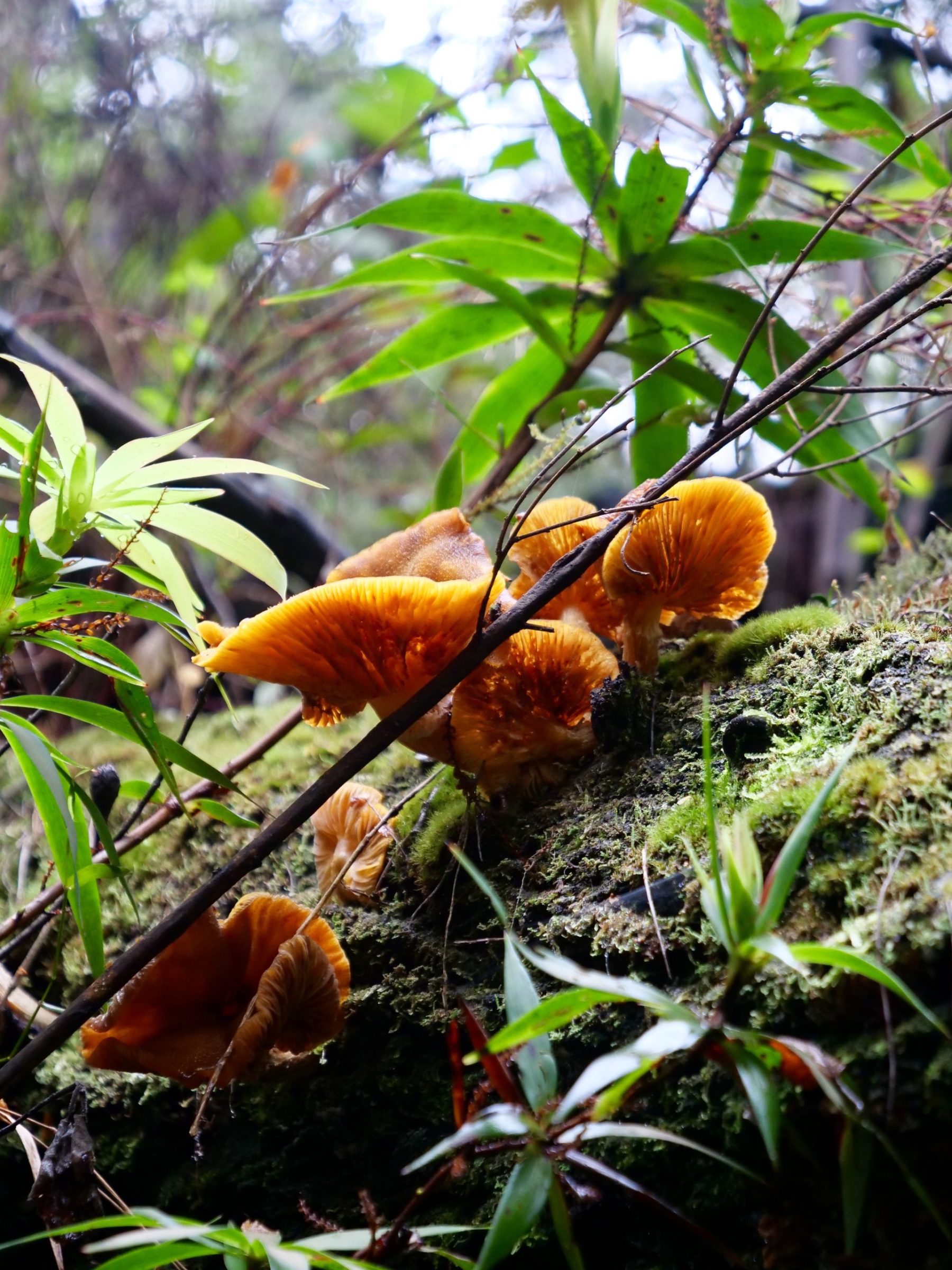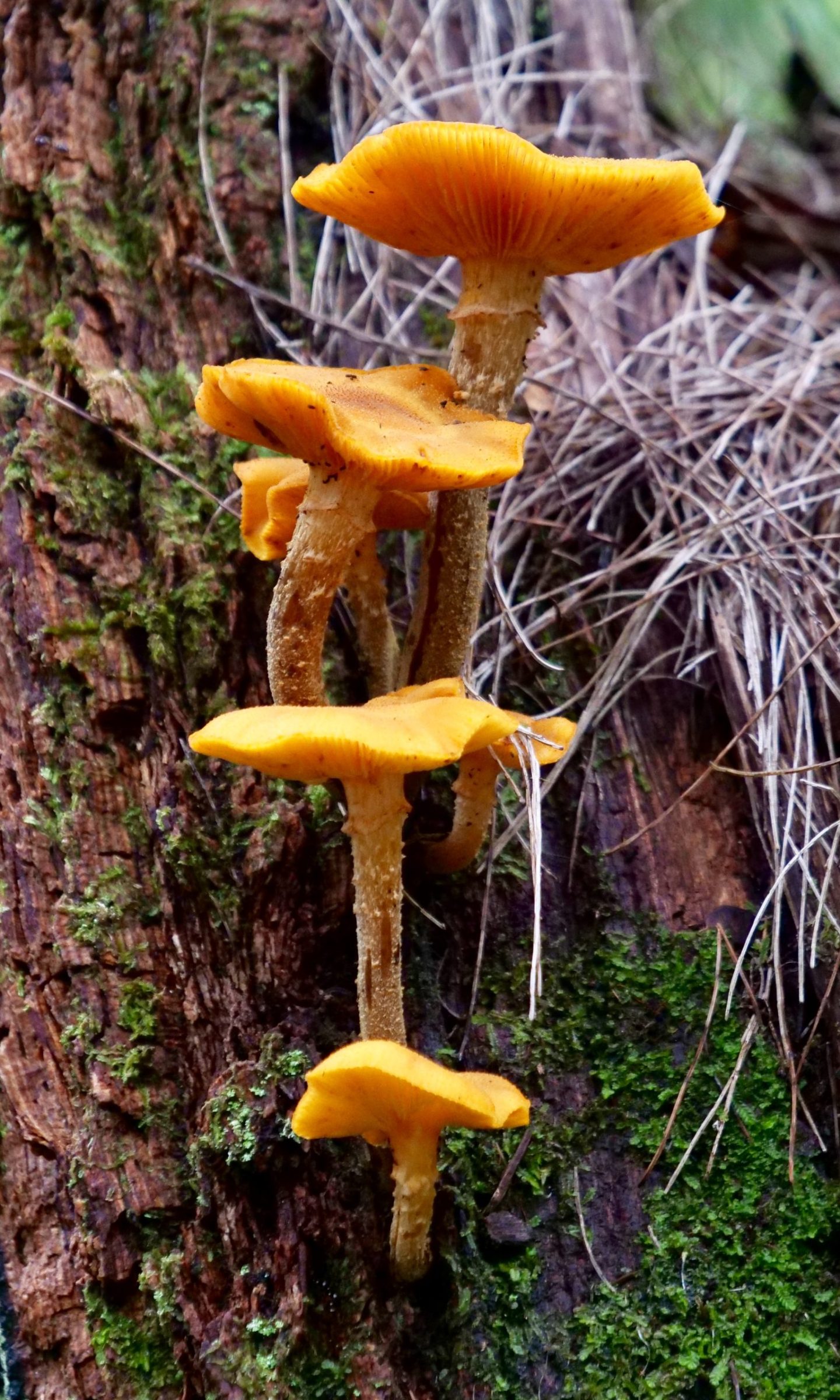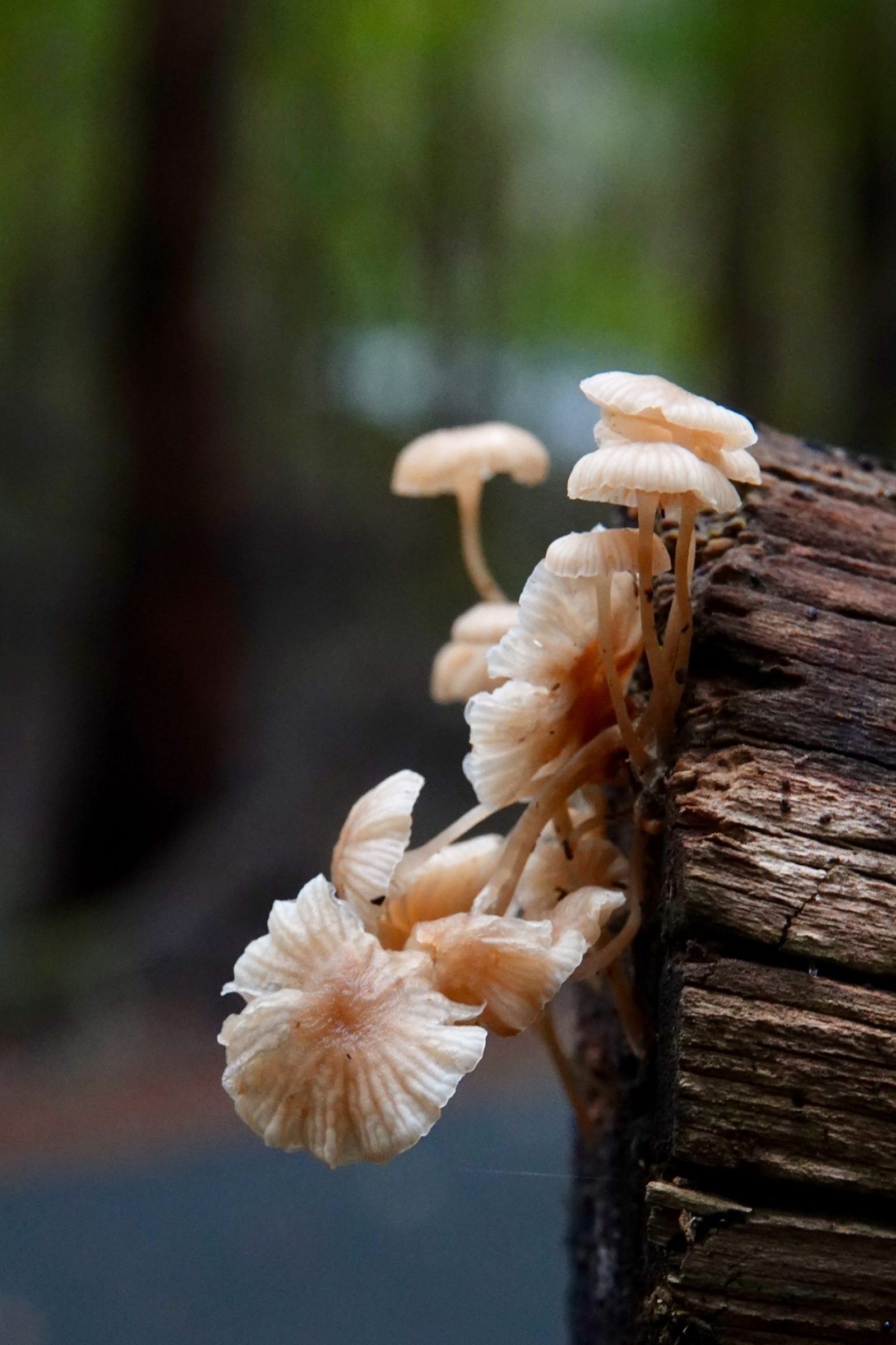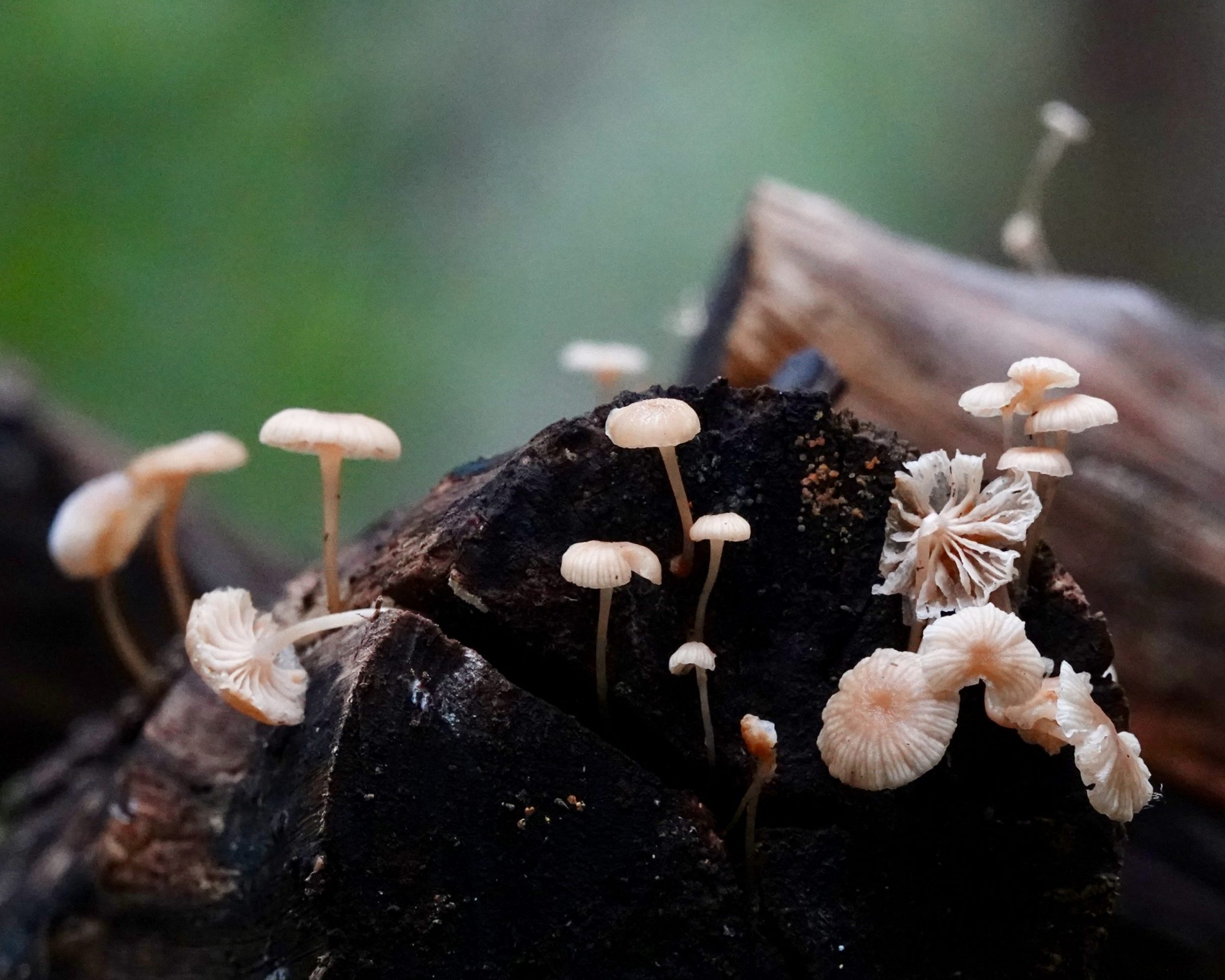Southwestern Western Australia is rightly renowned for the extraordinary diversity of its flowering plants.
Its fungi are even more diverse.
Fungi species comprehensively outnumber the combined total of plant and animal species.
Macrofungi are the ones with fruiting bodies big enough to be visible to an observant, naked human eye, in the wild.
The very tiny caps (most were smaller than my little fingers’ nails) in this post’s featured and final images are probably small umbrella bonnets – one of many Mycena species found in Western Australia’s southern forests.
All photos copyright Doug Spencer, taken on the Lefroy Brook Loop Walk, just a few minutes drive from Pemberton.
The walk is easy to find and easy to do – it begins and ends at the carpark by The Cascades, in Gloucester National Park.
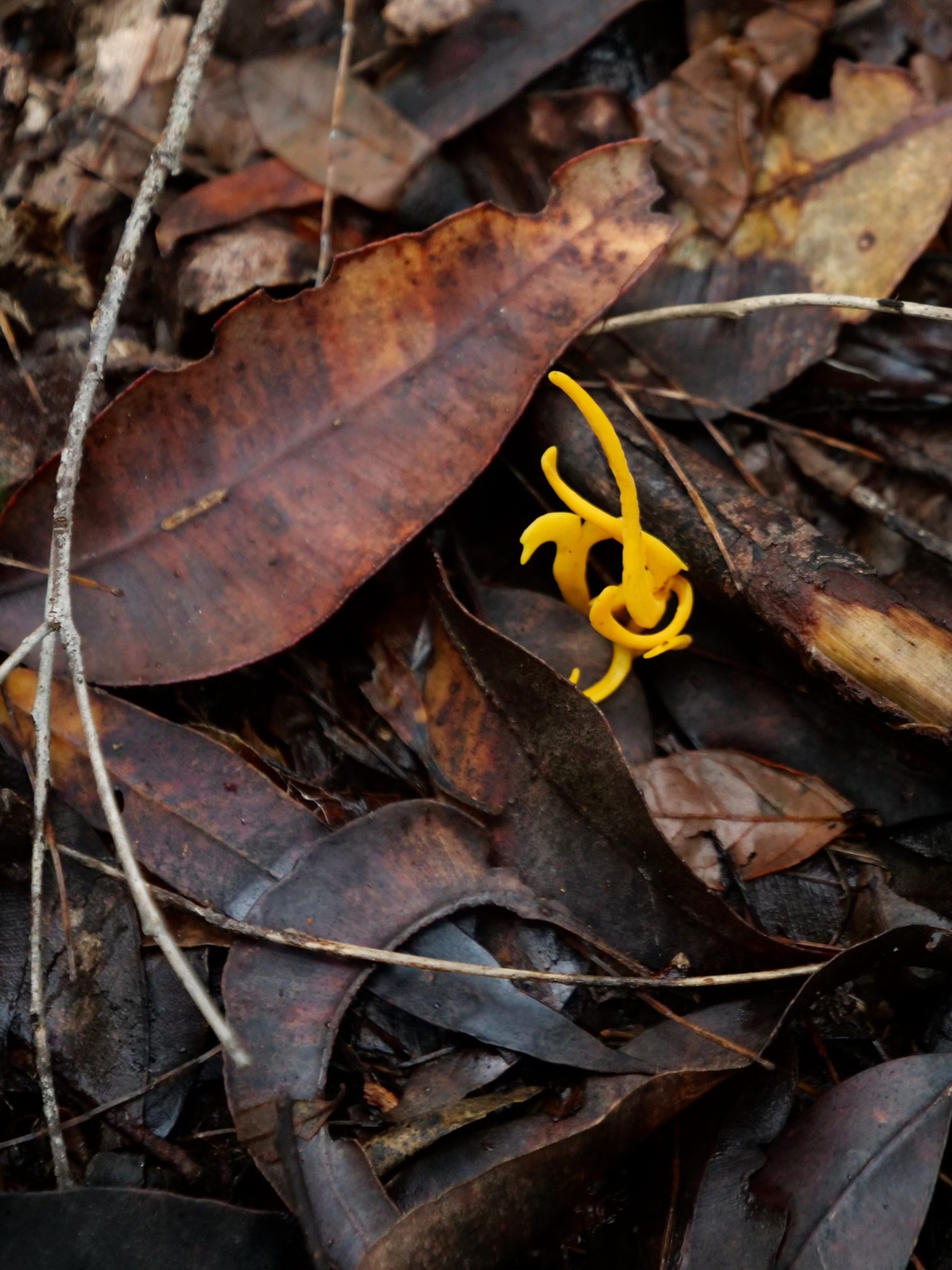
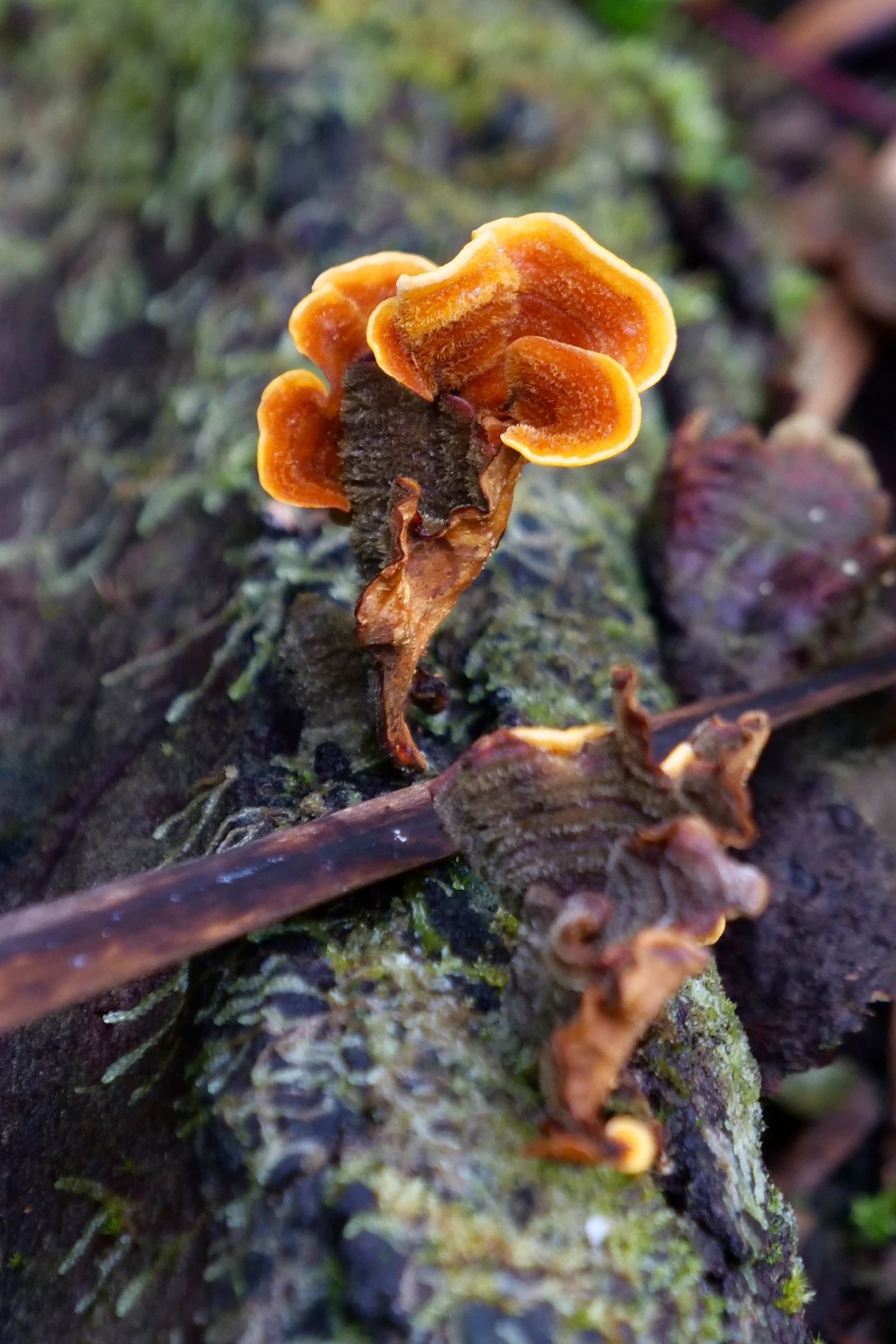
June 15 2020 was damp and dark – not ideal conditions for hand-held photography, using only natural light. I did not even attempt to photograph some of the choicer fungi we saw that day.
If you would like to see just how very rich in fungal life are Western Australia’s southern forests click this.
Click here for details of a handy pocket guide.
